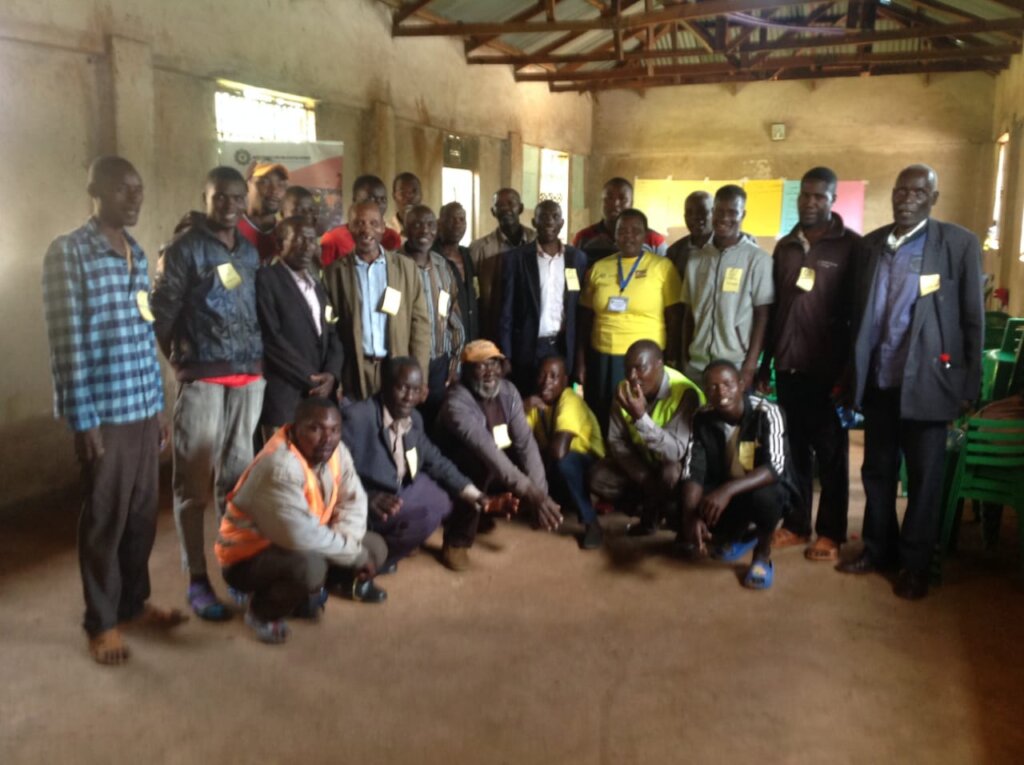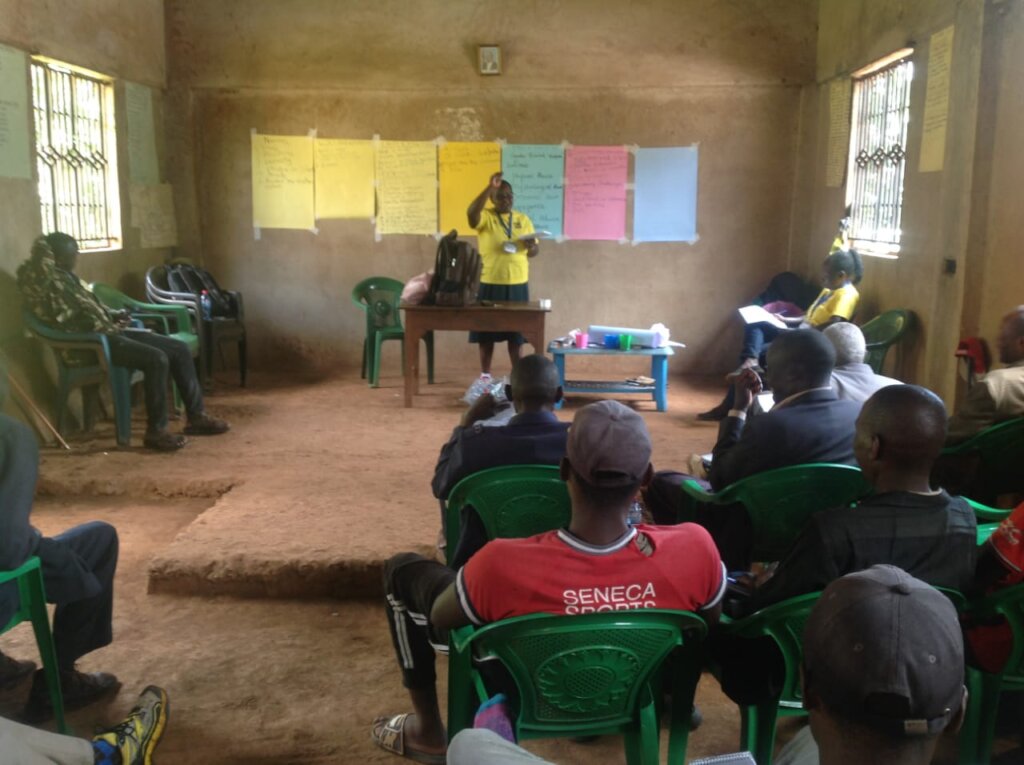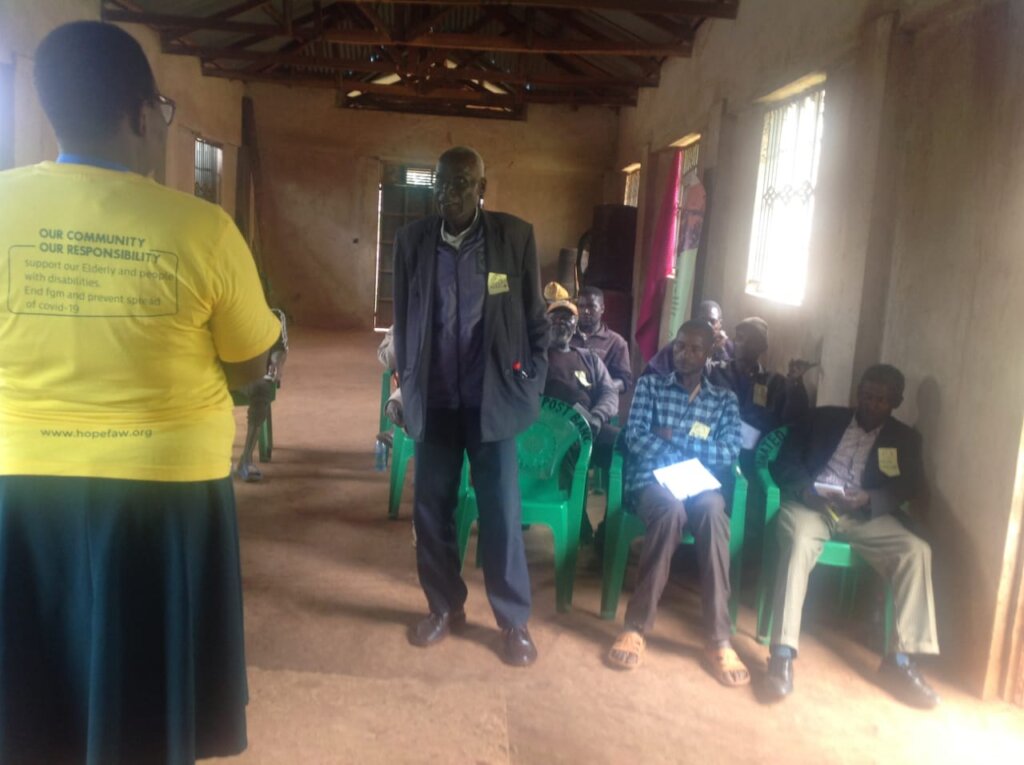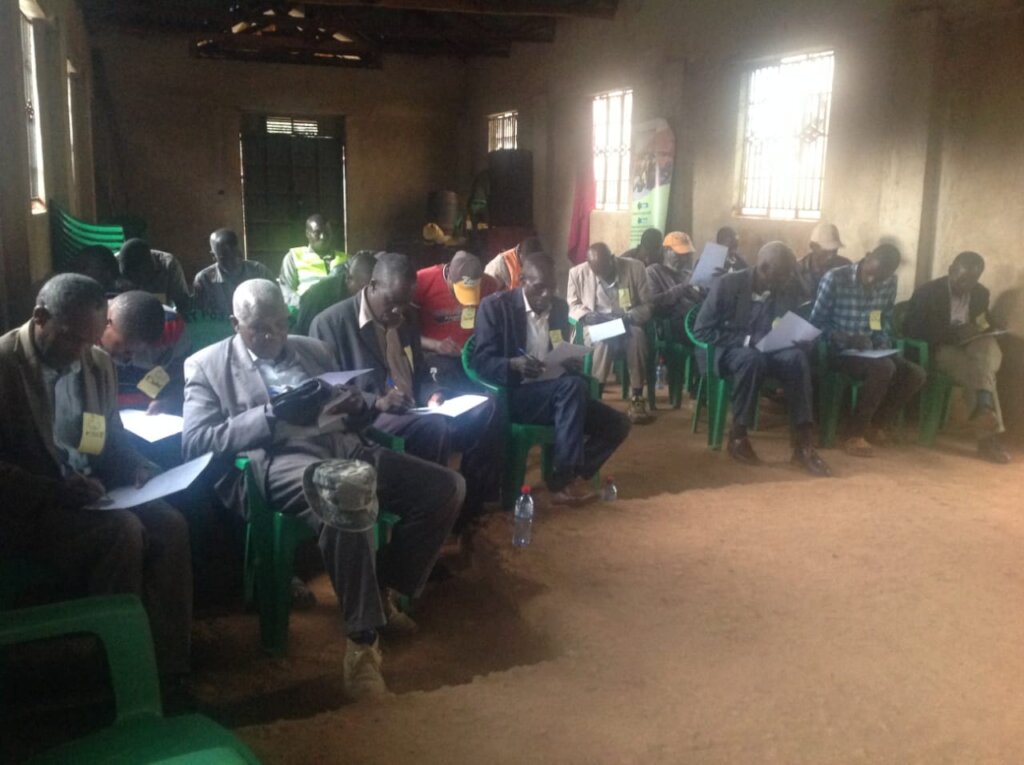By Doris Kananu | Program Director
Dear Esteemed Supporters and Cheerleaders,
We are thrilled to share the outcomes of our recent engagement in Nyamonge Sub-location, where HFAW team conducted a transformative workshop for 25 men, including the area chief. This session aimed to address the interconnection between female genital mutilation (FGM), gender- based violence (GBV), and sexual and reproductive health. Your unwavering support continues to empower us to reach more communities, spreading awareness and fostering change.
HFAW's decision to extend its advocacy work to Nyamonge was informed by reports of high GBV prevalence in the area, as communicated by the local chief during a prior meeting in Nyamusi. Recognizing the urgency, the team engaged men—often overlooked in anti-FGM and anti-GBV campaigns—to foster understanding and inspire action. As heads of families and key decision- makers, their involvement is critical in transforming harmful cultural practices.
The workshop commenced with an introduction to HFAW, detailing our mission and the personal experiences that inspired this work. Participants were encouraged to share openly, creating a space for honest discussions about FGM and GBV.
Gladys provided a detailed explanation of FGM, describing it as the partial or total removal of female genitalia for non-medical reasons. She outlined its short- and long-term effects, such as prolonged labor, psychological trauma, and increased risks of stillbirth. Sharing her testimony as fistula survivor, she emphasized the critical role men play in eradicating FGM.
Joyce highlighted the links between FGM and GBV, noting that cutting often leads to sexual dissatisfaction, fostering resentment and emotional disconnection in marriages. She explained how these issues manifest as psychological, physical, emotional, and sexual abuse, as well as neglect within households.
The men engaged in candid discussions, sharing their perspectives and learning from one another. Their comments illuminated deeply ingrained cultural norms:
John: “In our culture, a woman must be submissive to a man. If she doesn’t comply, she must be disciplined.”
Omwenga: “Respect comes only after a woman undergoes FGM. Without it, she is seen as incomplete.”
Oginda: “How can it be called rape when I paid dowry? My wife must cooperate whenever I need her.”
Kepher: “Emotional abuse is real. I see how my wife’s frustrations affect our children. This workshop has opened my eyes.”
Samuel: “I now understand the issues in my marriage. I’m ready to change and will share this knowledge with others.”
Key Outcomes
The session yielded several significant outcomes:
1. Increased Awareness: Participants acknowledged the harmful effects of FGM and GBV, pledging to lead abandonment efforts.
2. Commitment to Change: Men recognized the need for mutual respect, better communication, and shared responsibilities in their relationships.
3. Community Impact: The area chief expressed gratitude, requesting additional sessions to reach more groups, including adolescent girls and at-risk youth.
4. Breaking Myths: Participants were encouraged to challenge harmful cultural beliefs and embrace healthier practices, including regular medical checkups to prevent illnesses.
The workshop in Nyamonge marked a critical step toward fostering positive change. The insights gained and the commitments made by participants inspire hope for a safer and more equitable community. Your continued support makes this work possible, and we invite you to share our mission with your networks to amplify our impact.
Thank you for being an integral part of our journey. Together, we can create a future where women and girls are free from FGM and GBV.
Sincerely,
Doris Kananu
Program Director
By Doris Kananu | Program Director
By Doris Kananu | Program Director
Project reports on GlobalGiving are posted directly to globalgiving.org by Project Leaders as they are completed, generally every 3-4 months. To protect the integrity of these documents, GlobalGiving does not alter them; therefore you may find some language or formatting issues.
If you donate to this project or have donated to this project, you can receive an email when this project posts a report. You can also subscribe for reports without donating.
Support this important cause by creating a personalized fundraising page.
Start a Fundraiser


